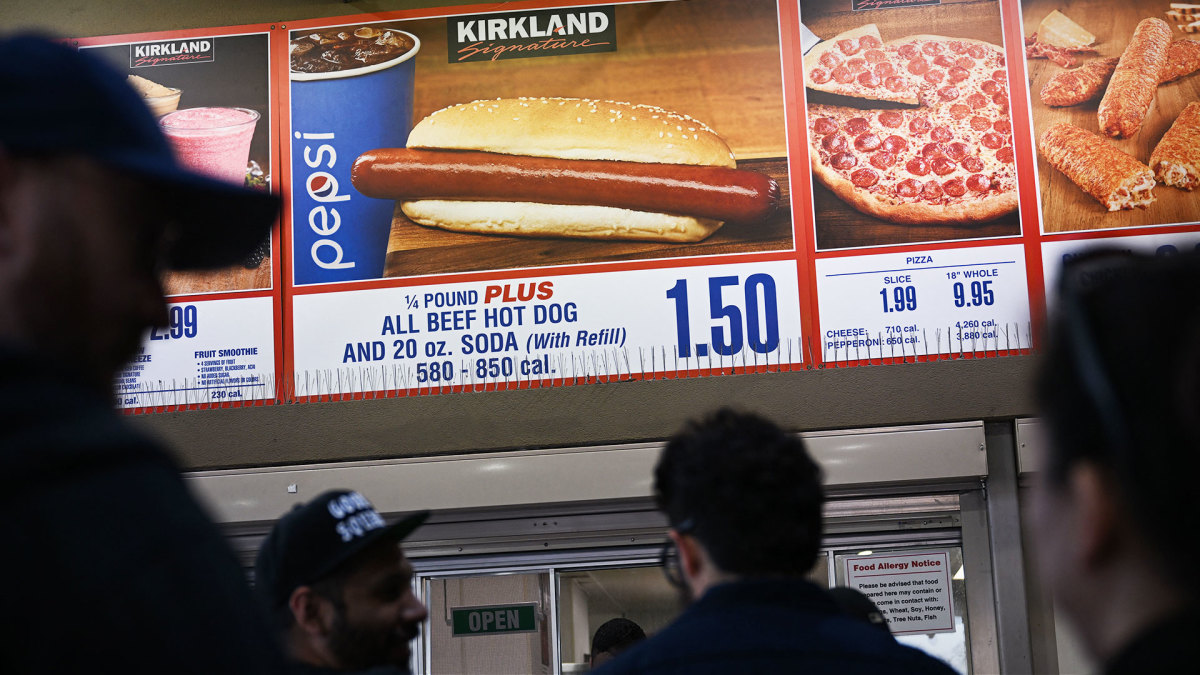
Since the covid pandemic hit, retailers have offered many reasons for raising prices, ranging from supply-chain problems to increased labor costs to the easy-to-blame inflation.
While higher wages as a factor driving retail prices higher is easy for people to understand, the other two reasons offer a bit more room for interpretation.
Supply-chain issues are real but they also hit companies in different ways. The bigger players, including Walmart, Target TGT, Kroger, Amazon AMZN, and Costco, had the buying power to avoid certain problems. When products were in short supply, those chains got their orders first, leaving smaller players struggling for higher-priced alternatives.
During the worst of the problem Costco even operated leased ships to lower its shipping costs and improve its supply chain.
That's not to say that supply-chain issues did not drive prices higher at these massive retailers, but the companies also had some levers to fight it.
Inflation has also been very real. Food prices have risen 3.7% over the past 12 months, according to the Bureau of Labor Statistics' Consumer Price Index. The number has felt higher for consumers who have also faced higher housing prices and skyrocketing car prices.
Walmart WMT and Kroger both continue to cite inflation as something they're fighting, while Costco appears to have won the battle.
Walmart and Kroger face inflation woes
Walmart and Kroger both recently commented about their struggles with inflation.
"As I look at the remainder of the year, our immediate focus is on getting product costs and retails down to fight inflation, which will help with mix, improving execution of pickup and delivery orders; expense management; and inventory management by item and category," Walmart Chief Executive Doug McMillon said during his company's second-quarter-earnings call.
While still citing inflation as a major problem, Walmart has celebrated its own efforts to keep prices for certain products in check.
"Over the last year here in the U.S., we partnered with suppliers to utilize rollbacks and offer select seasonal baskets of goods at the same prices as last year, essentially removing the impact of inflation," Walmart Chief Financial Officer John David Rainey said. "[We're] taking a similar inflation-fighting approach to back-to-school with a basket of 14 of the most popular classroom essentials for under $13."
Rainey did, however, still sound an alarm while also admitting that there has been improvement.
"Grocery inflation moderated more than 400 basis points [4 percentage points] from Q1 levels and more than 700 basis points year over year to a high-single-digit increase as we lapped higher levels from last year. On a two-year stack, grocery inflation remained over 20%," he added.
Kroger KR CEO Rodney McMullen, like his colleagues at Walmart, also continues to cite inflation as a reason for higher prices.
"The effect of sustained inflation reduced government benefits including SNAP, and higher interest rates have pressured customer spending, especially for those on a tight budget," he said during his company's second-quarter earnings call.
He too paints inflation as the villain and his company as the hero.
"To support our customers, we are delivering increased value through our robust Our Brands portfolio, personalized digital offers, fuel rewards, and loyalty discounts, including weekly specials and yellow tag promotions," he said.

Image source: Patrick T. FALLON / AFP) (Photo by PATRICK T. FALLON/AFP via Getty Images
Costco shares its thoughts on inflation
Costco COST CFO Richard Galanti has been direct in talking about inflation, specifying the numbers his company has seen. In the warehouse club's third-quarter-earnings call he was candid about the diminishing impact of inflation.
"Inflation continues to abate somewhat," he said. "If you go back a year ago to the fourth quarter of '22 last summer, we had estimated that year-over-year inflation at the time was up 8%. And by Q1 and Q2, it was down to 6% and 7% and then 5% and 6%. In this quarter, we're estimating the year-over-year inflation in the 3% to 4% range."
During Costco's third-quarter call, he was even more upbeat.
"Our estimate for Q4 inflation is in the 1% to 2% range, and it's actually trended downward during the quarter. So, hopefully, these inflation trends will continue," he added.
Galanti even said Costco has a plan for a deflationary economy.
"We'll take a 10-pack and make it a 12-pack I guess. But at the end of the day, if there's a little disinflation, it'll impact all of us. But again, I think it should be favorable to us because we'll still show the best value out there," he said.
CPI data back up Galanti's read on the economy as food prices rose 0.2% in September on a seasonally adjusted basis.
Get investment guidance from trusted portfolio managers without the management fees. Sign up for Action Alerts PLUS now.







